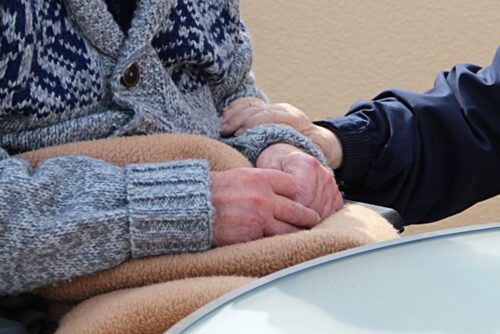
Whether it be in a nursing home, hospital, or otherwise, there have been reports of elders being sexually abused while under the supervision of a trusted caregiver. This is inexcusable behavior, let alone a serious offense. So, if there is any indication that your elder is being sexually abused, you must take action. Read on to discover what you should do if you suspect your elder is sexually abused and how a seasoned California elder abuse lawyer at Cowdrey & Jenkins LLP can help you fight back.
What is the definition of sexual abuse in the state of California?
In the state of California, sexual abuse of an elder occurs when a caregiver or other individual forces unwanted sexual contact with an elderly person. Most reports of elder sexual abuse come from nursing homes or other long-term care facilities throughout the state.
What are signs that my elder is being sexually abused?
Perpetrators tend to target individuals who they perceive as vulnerable or easy to overpower. This is why, unfortunately, elders are commonly made victims of sexual abuse. With that, some elders have mental conditions such as dementia, Alzheimer’s disease, or otherwise, that make them unable to give consent and are therefore one of the more common targets for such abuse.
With all of this considered, if your loved one is in a long-term care facility, you must serve as their protector and ensure that they are not made a victim of such abuse. You can do so by looking out for certain warning signs, such as the following:
- Bruising to private areas.
- Bleeding from private areas.
- Irritation or pain in private areas.
- Irritation or pain when urinating or moving bowels.
- Bloody, stained, or ragged undergarments.
- A sexually transmitted disease or infection left unexplained.
- A sudden change in mood left unexplained.
- Symptoms of post-traumatic stress disorder.
- Anxiety or fear about bathing or using the restroom.
- Anxiety or fear around certain caregivers or residents.
What actions should I take if my elder is being sexually abused?
If you can detect sexual abuse early enough, you may just be able to save your loved one’s life. So even if you are not fully positive that sexual abuse occurred, it is better to be safe than sorry, and you should take the following actions:
- Report the incident to the Long-Term Care Ombudsman CRISISline at 1-800-231-4024.
- Report the incident to the California Department of Public Health at 1-833-401-0832.
- Report the incident to the long-term care facility.
- Report the incident to local law enforcement.
- Keep track of all reports, medical records, witness testimonies, etc.
And if you wish to continue forward with legal action, you cannot proceed without a competent California elder abuse lawyer by your side. Call our firm today.